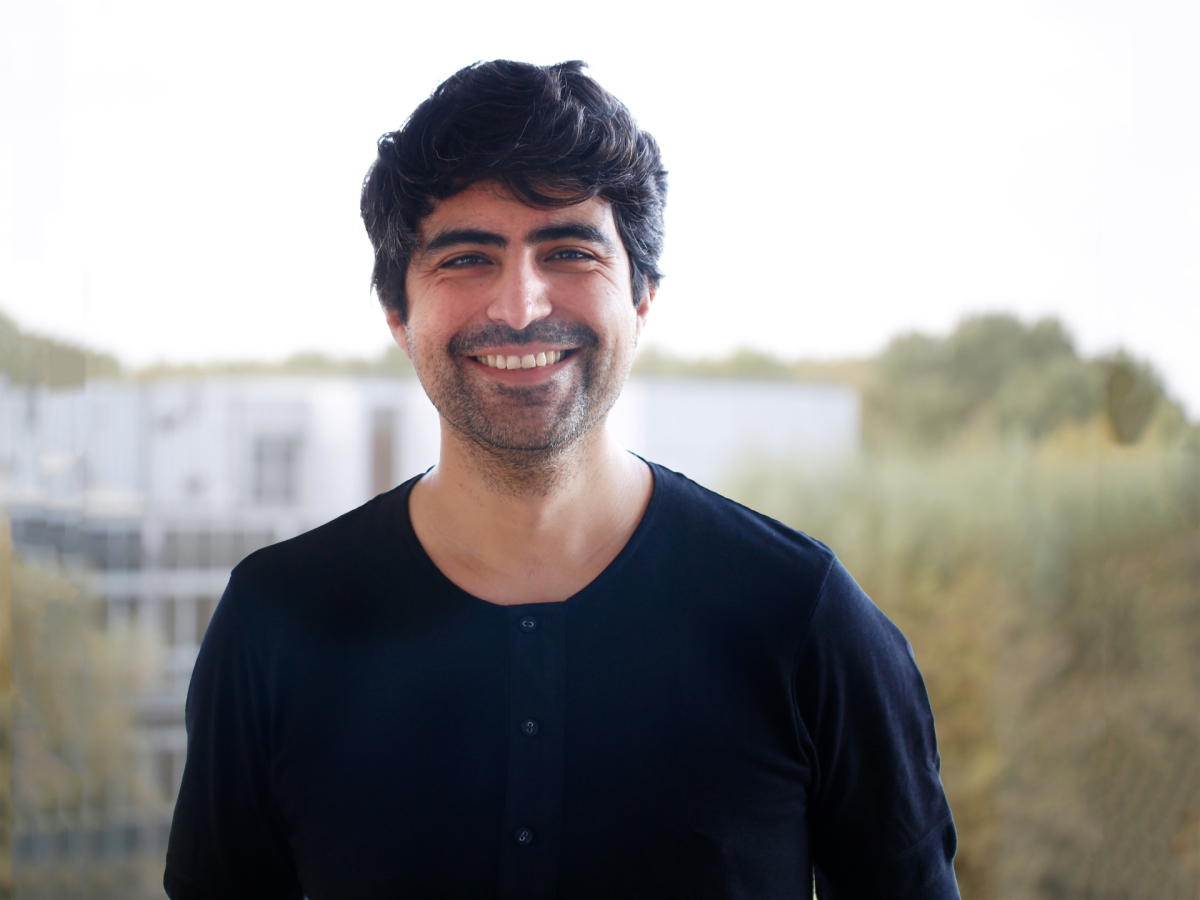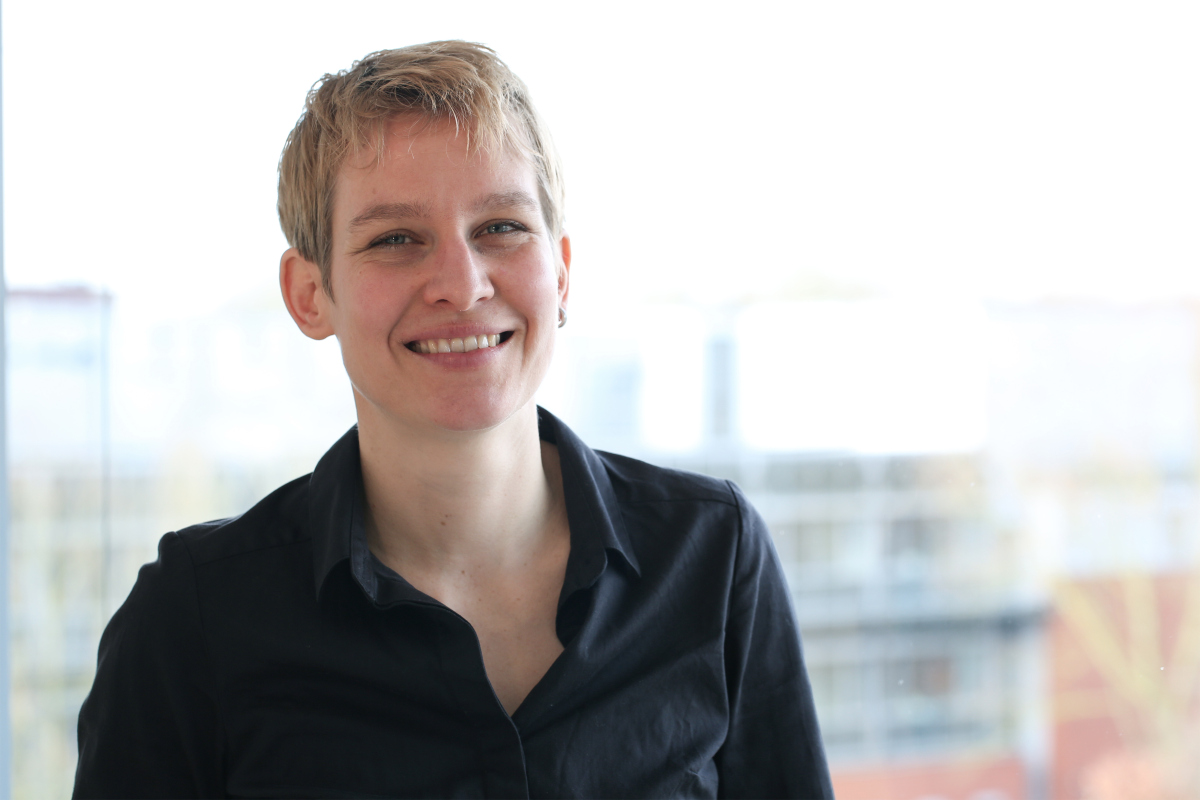- Press Office
- Press releases
- ERC starting grant for Luis Humberto Orellana Retamal
ERC starting grant for Luis Humberto Orellana Retamal
Luis Humberto Orellana Retamal (Coto) has received an ERC Starting Grant for his project “Ecological and evolutionary role of specialized bacteria in algae health and carbon sequestration — ERODERS.” In this research, Coto will focus on a thus far overlooked component of the marine carbon cycle: “The marine carbon cycle is fascinating! Photosynthetic organisms transform carbon dioxide into organic matter that fuels the marine biome, but their activity can also act as a natural sink for carbon dioxide,” Coto explains. “My research will focus on the role of previously unaccounted bacteria able to consume the hard-to-degrade fraction of carbon that has been proposed to be important for carbon storage.” This portion of organic matter is mainly derived from algal substances or complex glycans that provide structural support and defense against microbial pathogens. However, these hard-to-degrade sugars can act as a carbon source for the algae microbiome – i.e., the bacteria associated with the algae. Coto hypothesizes that the specialized bacteria living on algae, which is the target of this project, can feed on complex glycans (e.g., fucose-containing sulfated polysaccharides, FCSPs) and are integral to the algae microbiome. Nevertheless, research on them is scarce, and ERODERS plans to fill that gap.
ERODERS will focus on the diversity, mechanisms, and interactions between bacteria feeding on complex FCPS and the algae that produce them. Coto aims to use algae models such as the brown algae Ectocarpus to understand the interaction and role of algae microbiome in FCSP degradation (with colleagues from the Biological Station in Roscoff, France). In Coto’s view, “the specialized bacteria have co-evolved with the algae and have a key role in unlocking complex sugars that help to maintain the algae microbiome.” He hypothesizes that the microbial activity of these specialized degraders also modifies the structure of complex polysaccharides that participate in carbon sequestration processes. Coto emphasizes that bacteria belonging to the Verrucomicrobiota and Planctomycetota phyla are the only populations living on algae that carry the enzymes to consume FCSPs effectively. In his project, he will use a combination of cutting-edge approaches (multi-omics, visualization, and physiologic examination), to expand into the unknown diversity and population structure of FCSP-degrading bacteria on micro and macroalgae.
“Thanks to the ERC Starting grant, I can now freely focus on these questions and unveil the microbial diversity and mechanisms regulating the interaction of specialized bacteria with the algae host and its microbiome,” says Coto. On a broader view, he will also learn about the evolutionary processes behind the relationship between bacteria and hosts, which have implications for many environments, from the ocean to gut ecosystems.
ERC Starting Grants target excellent young researchers at the start of their independent careers, enabling them to establish their research team at a host institution. They are awarded with up to 1.5 million Euros over five years. “This funding makes me an independent researcher,” Coto explains. “However, developing this research here at the Max Planck Institute for Marine Microbiology is key to achieving the goals proposed in ERODERS because it allows me to easily interact with my fellow researchers in Bremen while maintaining close contact with colleagues from the Biological Station in Roscoff, France.”
In an ERC press release, Iliana Ivanova, Commissioner for Innovation, Research, Culture, Education and Youth at the European Commission, said: “The European Commission is proud to support the curiosity and passion of our early-career talent under our Horizon Europe programme. The new ERC Starting Grants winners aim to deepen our understanding of the world. Their creativity is vital to finding solutions to some of the most pressing societal challenges. In this call, I am happy to see one of the highest shares of female grantees to date, a trend that I hope will continue. Congratulations to all!”

Contact
Project Leader
Department of Molecular Ecology
Dr. Luis Humberto Orellana Retamal
MPI for Marine Microbiology
Celsiusstr. 1
D-28359 Bremen
Germany
|
Room: |
2226 |
|
Phone: |

Head of Press & Communications
MPI for Marine Microbiology
Celsiusstr. 1
D-28359 Bremen
Germany
|
Room: |
1345 |
|
Phone: |
